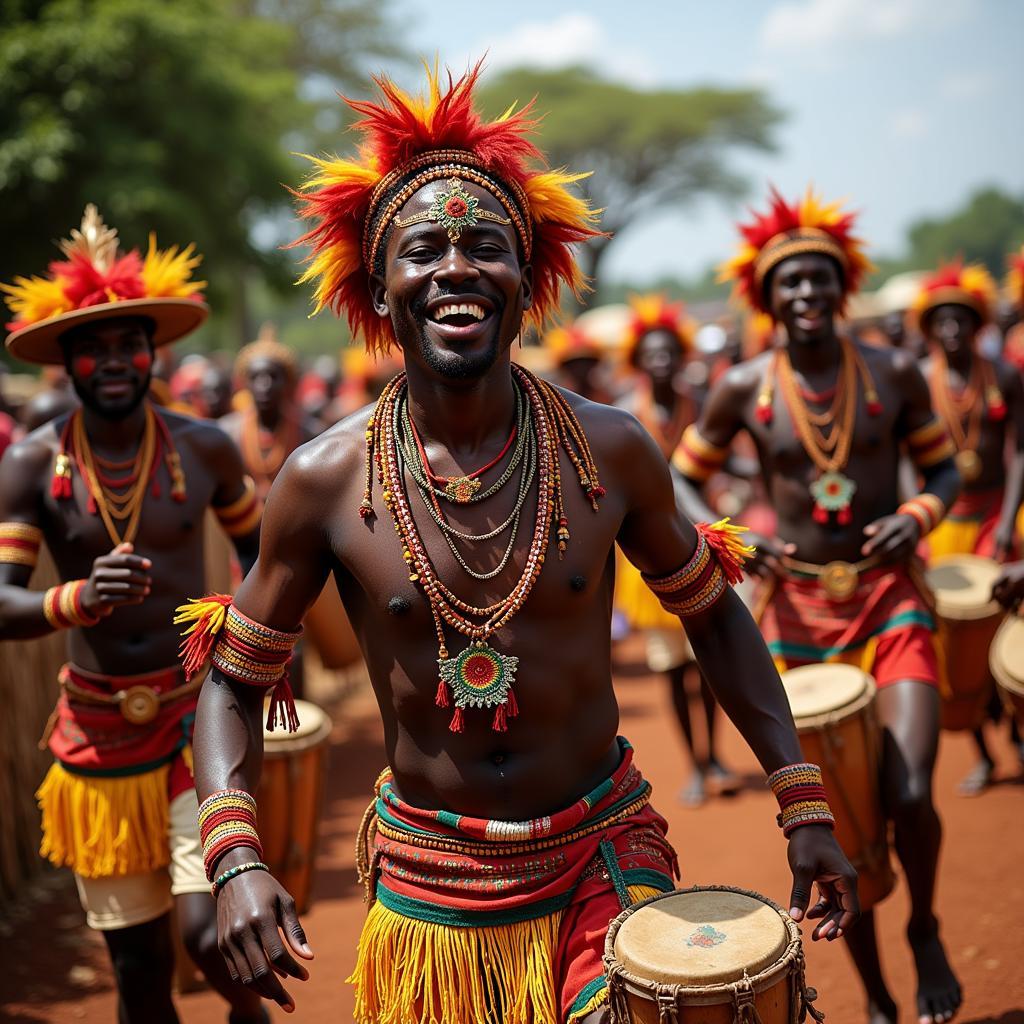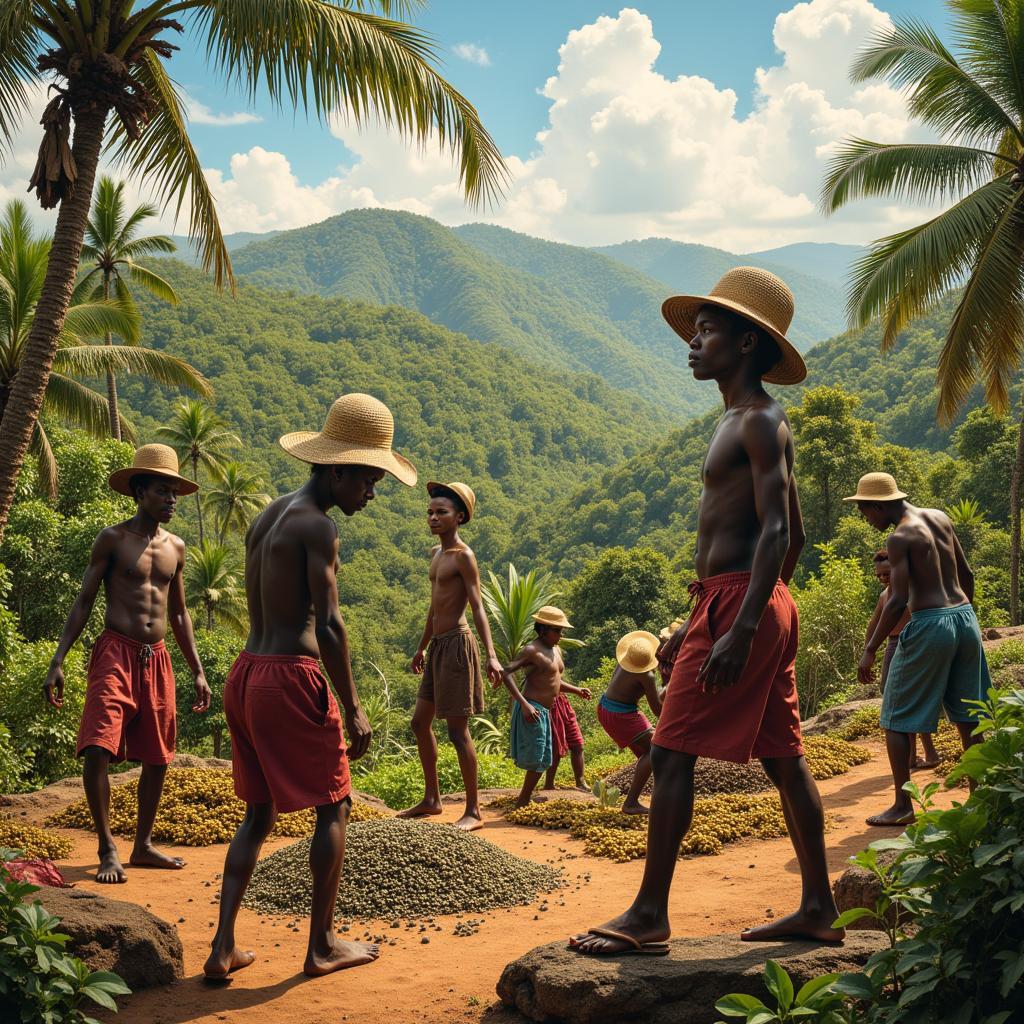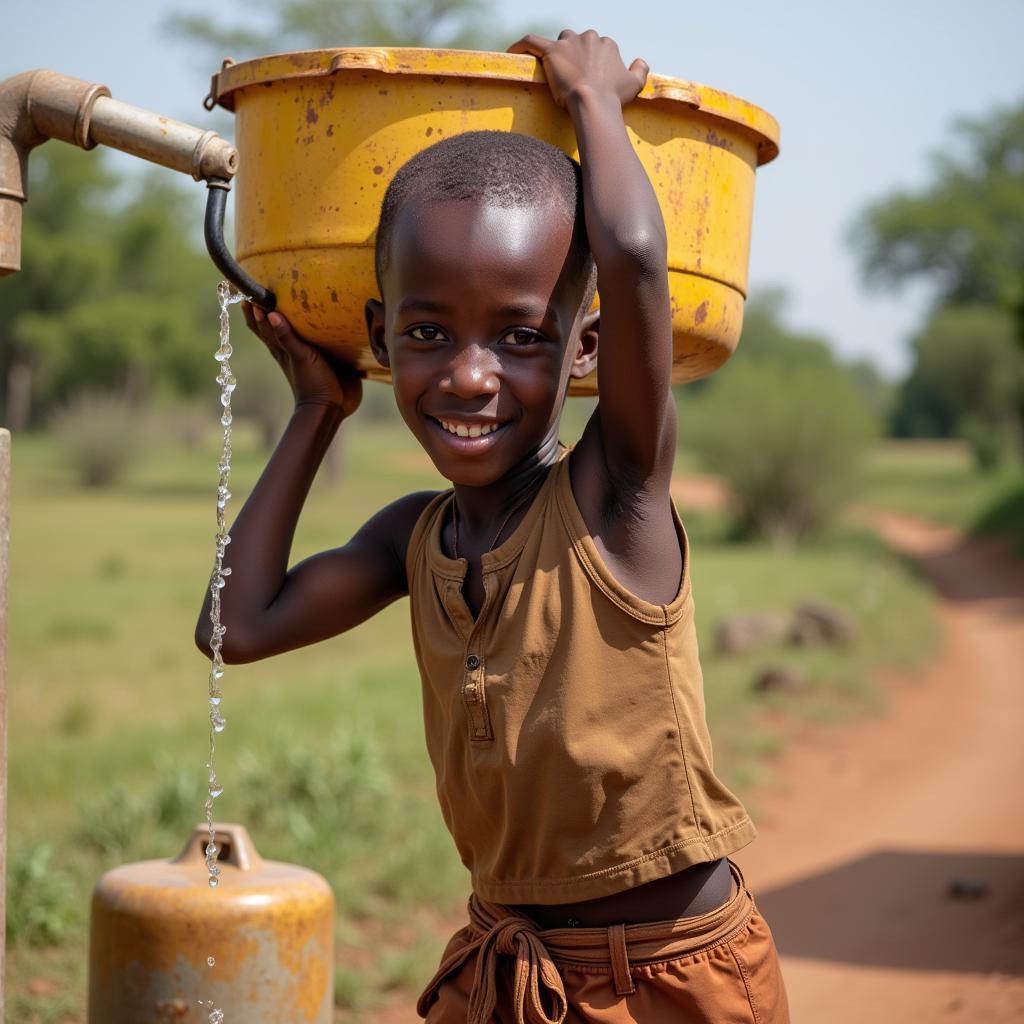African Customary Marriage: A Rich Tapestry of Tradition and Love
African Customary Marriage is a vibrant and multifaceted institution deeply embedded in the cultural fabric of numerous African societies. It represents far more than a legal union between two individuals; it is a sacred bond that unites families, communities, and even ancestors. These marriages are governed by a complex set of customs, traditions, and rituals that vary significantly across different ethnic groups and regions.
Exploring the Essence of African Customary Marriage
At its core, African customary marriage emphasizes the importance of family involvement, community recognition, and the continuation of cultural heritage. Unlike Western concepts of marriage, it is often seen as a union between two families rather than just two individuals. The process of entering into a customary marriage is typically lengthy and involves several stages, each with its own significance and symbolism.
The Significance of Family in African Customary Marriage
Families play a pivotal role in the selection of partners, negotiation of bride price (also known as lobola), and the overall process of the marriage. Elders and relatives from both sides actively participate in discussions and decision-making, ensuring compatibility between the families and upholding societal norms.
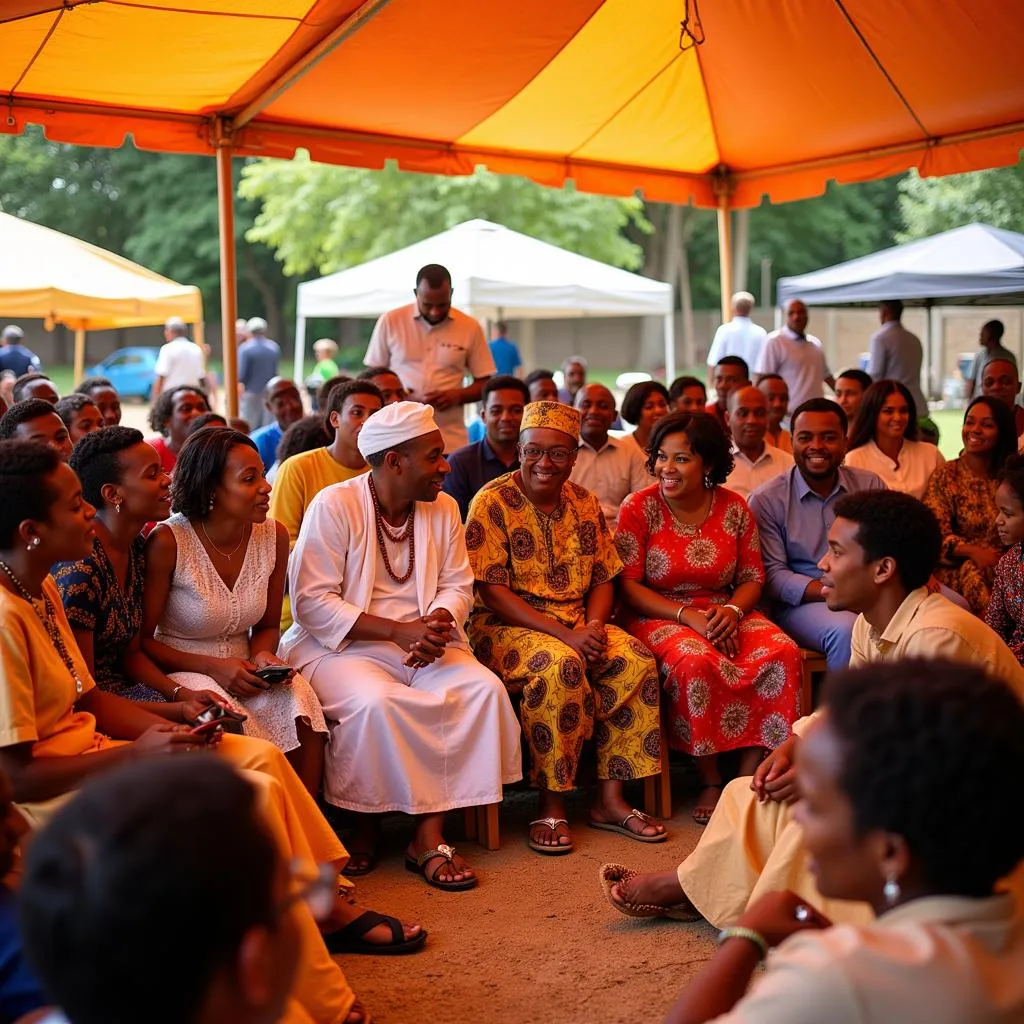 Family gathering for an African customary marriage ceremony
Family gathering for an African customary marriage ceremony
The Role of Bride Price (Lobola)
Lobola is a central aspect of many African customary marriages and serves as a way of acknowledging the value of the bride and compensating her family for raising her. It is typically paid in the form of livestock, goods, or money, and the negotiations surrounding lobola can be elaborate and involve extensive discussions between both families.
Rituals and Ceremonies: A Celebration of Union
African customary marriages are often accompanied by a series of elaborate rituals and ceremonies that mark different stages of the union. These ceremonies are steeped in symbolism and tradition, reflecting the cultural values and beliefs of the specific community.
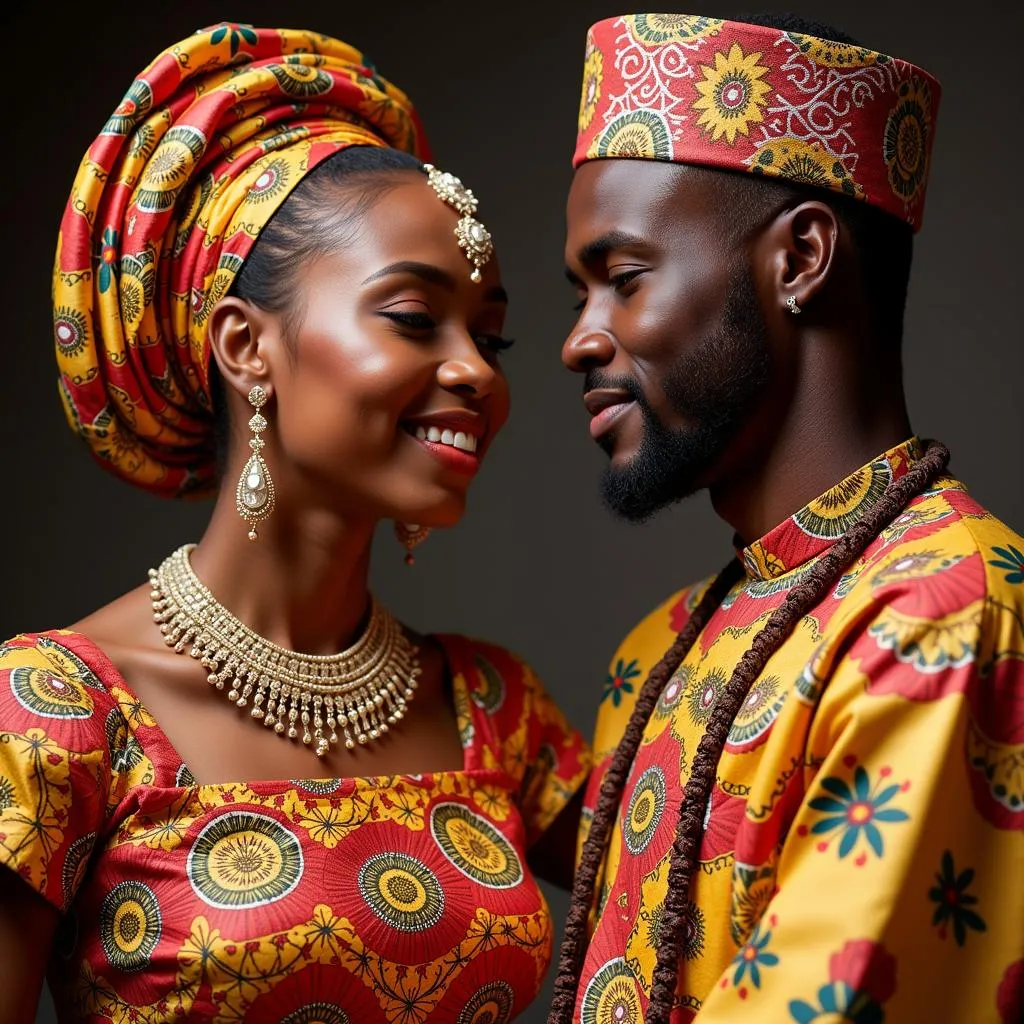 African bride and groom in traditional attire
African bride and groom in traditional attire
Navigating the Legal Landscape
In many African countries, customary marriages are legally recognized, alongside civil and religious marriages. However, the legal framework surrounding these unions can vary significantly, and it’s essential for couples to understand their rights and obligations.
Key Legal Considerations
Issues such as property rights, inheritance, and the legal status of children born into customary marriages can be complex and subject to different interpretations based on local customs and national laws. Seeking legal advice from a qualified professional is crucial to ensure that all parties involved are protected.
Adapting to Modernity
African customary marriage is not a static institution but rather a dynamic practice that continues to evolve in response to societal changes and contemporary influences. While traditional values remain strong, there is an increasing recognition of the need to address certain practices that may be considered harmful or discriminatory.
Empowering Women and Ensuring Equality
Efforts are being made across the continent to promote gender equality within customary marriages. This includes advocating for women’s rights in decision-making processes, challenging traditional practices that perpetuate inequality, and ensuring that women have equal access to education and economic opportunities.
Bridging the Gap Between Tradition and Modernity
Many young Africans are choosing to blend elements of traditional customs with modern practices in their marriages. This reflects a desire to honor their cultural heritage while also embracing contemporary values and lifestyles.
Conclusion
African customary marriage is a rich tapestry of tradition, culture, and community. While it faces challenges in a rapidly changing world, it remains a deeply significant institution that continues to unite couples and families across the African continent. Understanding the complexities and nuances of African customary marriage is essential for appreciating the diversity and beauty of African culture.
Dr. Abena Owusu, a renowned anthropologist specializing in African marriage customs, emphasizes: “Customary marriage is a vibrant and evolving institution that plays a crucial role in shaping social norms and preserving cultural heritage in Africa. It is a complex and nuanced practice that deserves to be understood and appreciated in all its diversity.”
Frequently Asked Questions About African Customary Marriage
1. What is the significance of lobola in African customary marriage?
Lobola is a traditional practice that involves the groom’s family providing gifts, often in the form of livestock or money, to the bride’s family. It is seen as a way of showing appreciation for raising the bride and as a symbol of the commitment between the two families.
2. Are African customary marriages legally recognized?
The legal recognition of customary marriages varies across African countries. In some countries, they are fully recognized, while in others, they may have limited legal status or require registration to be recognized.
3. Can a customary marriage be dissolved?
Yes, customary marriages can be dissolved, but the process varies depending on the specific customs of the community involved. It typically involves elders or traditional leaders mediating and making decisions based on cultural norms.
4. Are women forced into customary marriages?
Forced marriage is a violation of human rights and is not considered a legitimate form of customary marriage. While arranged marriages are common in some cultures, genuine consent from both the bride and groom is essential.
5. How are customary marriages adapting to modern society?
Customary marriages are evolving to reflect changing societal norms and values. For example, there is a growing emphasis on gender equality, and some communities are adapting their practices to ensure women have more rights and agency within marriage.
For more information or assistance with legal matters related to African customary marriage, please contact us at:
Phone: +255768904061
Email: kaka.mag@gmail.com
Address: Mbarali DC Mawindi, Kangaga, Tanzania.
Our team is available 24/7 to provide support and guidance.
